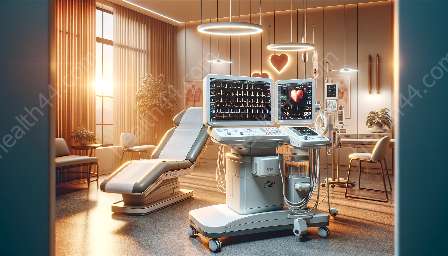Electrocardiography (ECG or EKG) is a vital tool in the diagnosis and management of various cardiac conditions. However, the use of ECG/EKG machines also requires strict safety considerations to ensure accurate readings and the well-being of patients and healthcare professionals. In this topic cluster, we will explore the safety considerations, best practices, and guidelines for using ECG/EKG machines, keeping in mind the overall context of medical devices and equipment safety.
Understanding ECG/EKG Machines
Before delving into the safety considerations, it's important to understand the basic functionality of ECG/EKG machines. These devices measure the electrical activity of the heart, providing valuable information about the heart's rhythm and any potential abnormalities. ECG/EKG machines are widely used in hospitals, clinics, and other medical settings to aid in the diagnosis and monitoring of cardiac conditions.
Safety Considerations for Patients
Patient Preparation: Proper patient preparation is essential for obtaining accurate ECG/EKG readings. Patients should be instructed to avoid applying lotions, oils, or powder to their skin before the procedure, as these substances can interfere with the electrode adhesion and lead to inaccurate results.
Electrode Placement: Careful attention to electrode placement is crucial to ensure accurate readings. Healthcare professionals should follow standardized guidelines for electrode positioning to capture the electrical activity of the heart from the appropriate angles.
Electrical Safety: ECG/EKG machines operate by measuring the electrical signals of the heart. It is imperative to ensure that the equipment is properly grounded and that all electrical connections are secure to prevent the risk of electrical shock to patients.
Safety Considerations for Healthcare Professionals
Training and Competency: Proper training and ongoing competency assessment are essential for healthcare professionals who operate ECG/EKG machines. Understanding the equipment's functionality, troubleshooting common issues, and interpreting the results accurately are critical for providing high-quality care.
Equipment Maintenance: Regular maintenance and calibration of ECG/EKG machines are necessary to uphold safety standards. Malfunctioning equipment can lead to misinterpretation of ECG/EKG readings, potentially affecting patient care and outcomes.
Infection Control: Proper cleaning and disinfection of ECG/EKG equipment between patient use are essential to prevent the transmission of infectious agents. Following established protocols for infection control helps mitigate the risk of cross-contamination.
Regulatory Compliance and Standards
Quality Assurance: ECG/EKG machines, like all medical devices, must adhere to stringent quality assurance standards to ensure accuracy, reliability, and safety. Healthcare facilities should procure ECG/EKG machines from reputable manufacturers that comply with regulatory requirements and industry standards.
Compliance with Privacy Regulations: ECG/EKG machines often store patient data, necessitating adherence to privacy regulations such as the Health Insurance Portability and Accountability Act (HIPAA). Safeguarding patient information is crucial for maintaining trust and confidentiality.
Best Practices and Guidelines
Documentation and Record-Keeping: Accurate documentation of ECG/EKG procedures and results is essential for maintaining a comprehensive patient record and facilitating continuity of care. Healthcare professionals should adhere to standardized protocols for documenting ECG/EKG findings.
Continuous Quality Improvement: Embracing a culture of continuous quality improvement ensures that healthcare facilities regularly review and update their ECG/EKG practices based on the latest evidence and best practices. This approach fosters ongoing enhancement of patient safety and care quality.
Conclusion
In conclusion, safety considerations in using ECG/EKG machines are paramount for delivering high-quality cardiac care while maintaining the well-being of patients and healthcare professionals. By understanding and implementing the best practices and guidelines outlined in this topic cluster, healthcare facilities can optimize the use of ECG/EKG machines and ensure the highest standards of safety and accuracy.


